Notebook
-
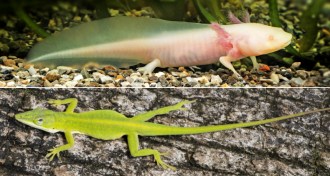 Life
LifeHow salamanders can regrow nearly complete tails but lizards can’t
Differences in stem cells in the spinal cord explain the amphibians’ ability.
-
 Science & Society
Science & SocietyCheese found in an Egyptian tomb is at least 3,200 years old
Solid cheese preserved in an ancient Egyptian tomb may be the world’s oldest.
-
 Earth
EarthIn 1968, scientists tried taming hurricanes
For over 20 years, the U.S. government tried to subdue hurricanes through cloud seeding, with mixed results.
By Kyle Plantz -
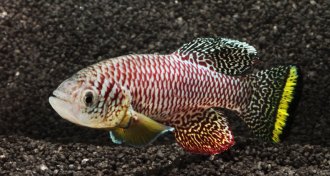 Animals
AnimalsThis killifish can go from egg to sex in two weeks
The fastest known maturing vertebrate in the lab is even faster in the wild.
By Susan Milius -
 Genetics
Genetics50 years ago, scientists took baby steps toward selecting sex
In 1968, scientists figured out how to determine the sex of rabbit embryos.
-
 Earth
EarthYou’re living in a new geologic age. It’s called the Meghalayan
The newly defined Meghalayan Age began at the same time as a global, climate-driven event that led to human upheavals.
By Beth Geiger -
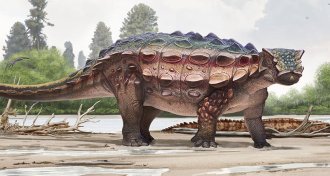 Animals
AnimalsA new ankylosaur found in Utah had a surprisingly bumpy head
The spiky, fossilized skull of a newly discovered dinosaur species may be a road map to its ancestors’ journey to North America.
-
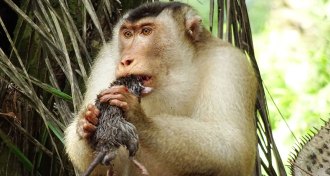 Animals
AnimalsMalaysia’s pig-tail macaques eat rats, head first
Pig-tail macaques are seen as a menace on Malaysian palm oil plantations, but may be helping to reduce rodent populations.
By Yao-Hua Law -
 Particle Physics
Particle Physics50 years ago, neutrinos ghosted scientists
In the last half-century, neutrino detectors have spotted particles cast out by the sun, supernova 1987A and a supermassive black hole.
-
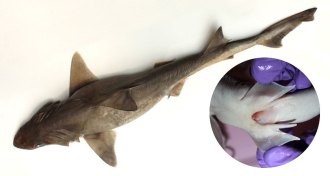 Animals
AnimalsSurprise! This shark looks like a male on the outside, but it’s made babies
External male reproductive organs hid internal female capacity to give birth among hermaphrodite sharks in India.
By Yao-Hua Law -
 Health & Medicine
Health & MedicineAir pollution is triggering diabetes in 3.2 million people each year
A new study quantifies the link between smoggy air and diabetes.
-
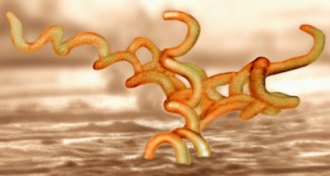 Health & Medicine
Health & MedicineFinally, there’s a way to keep syphilis growing in the lab
Scientists have figured out how to keep a sample of the bacteria Treponema pallidum alive and infectious for over eight months.